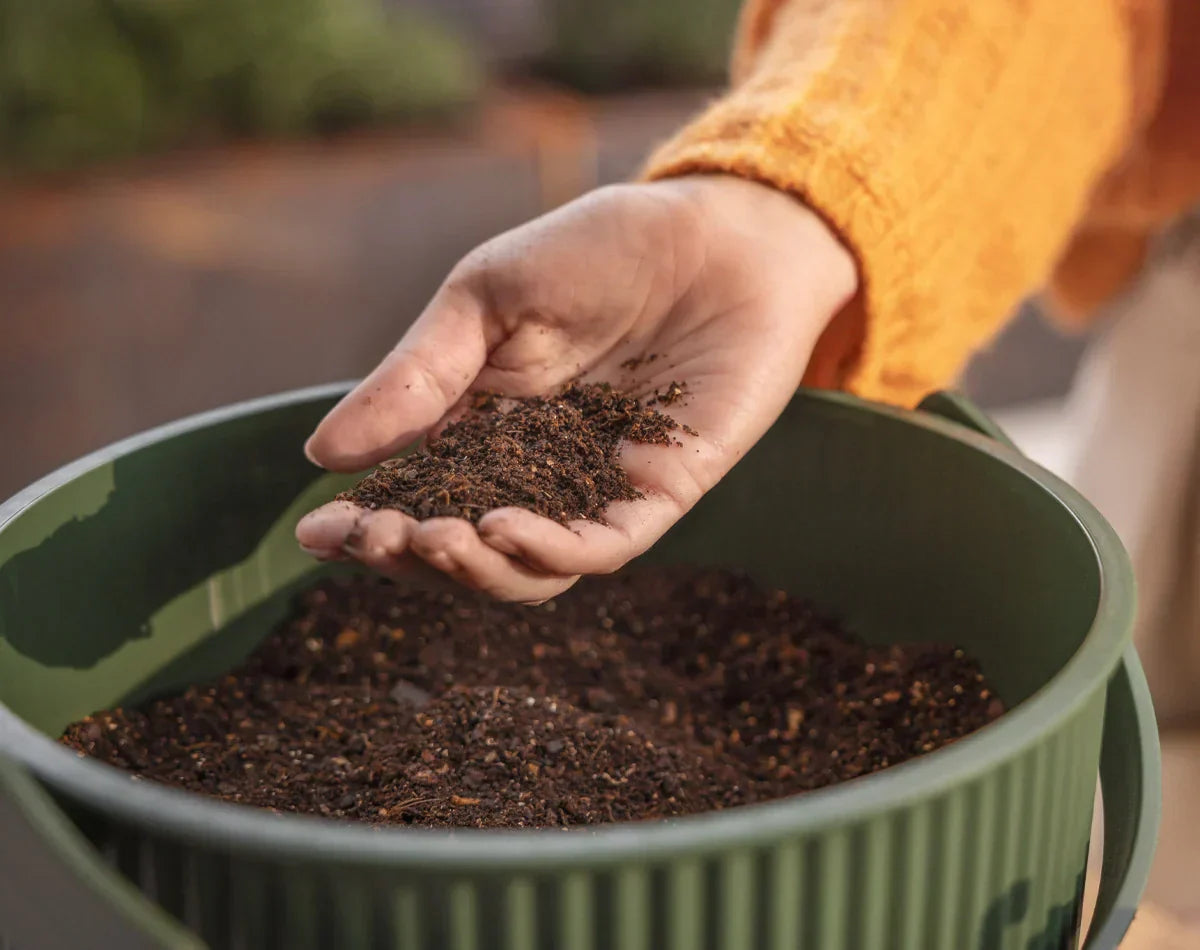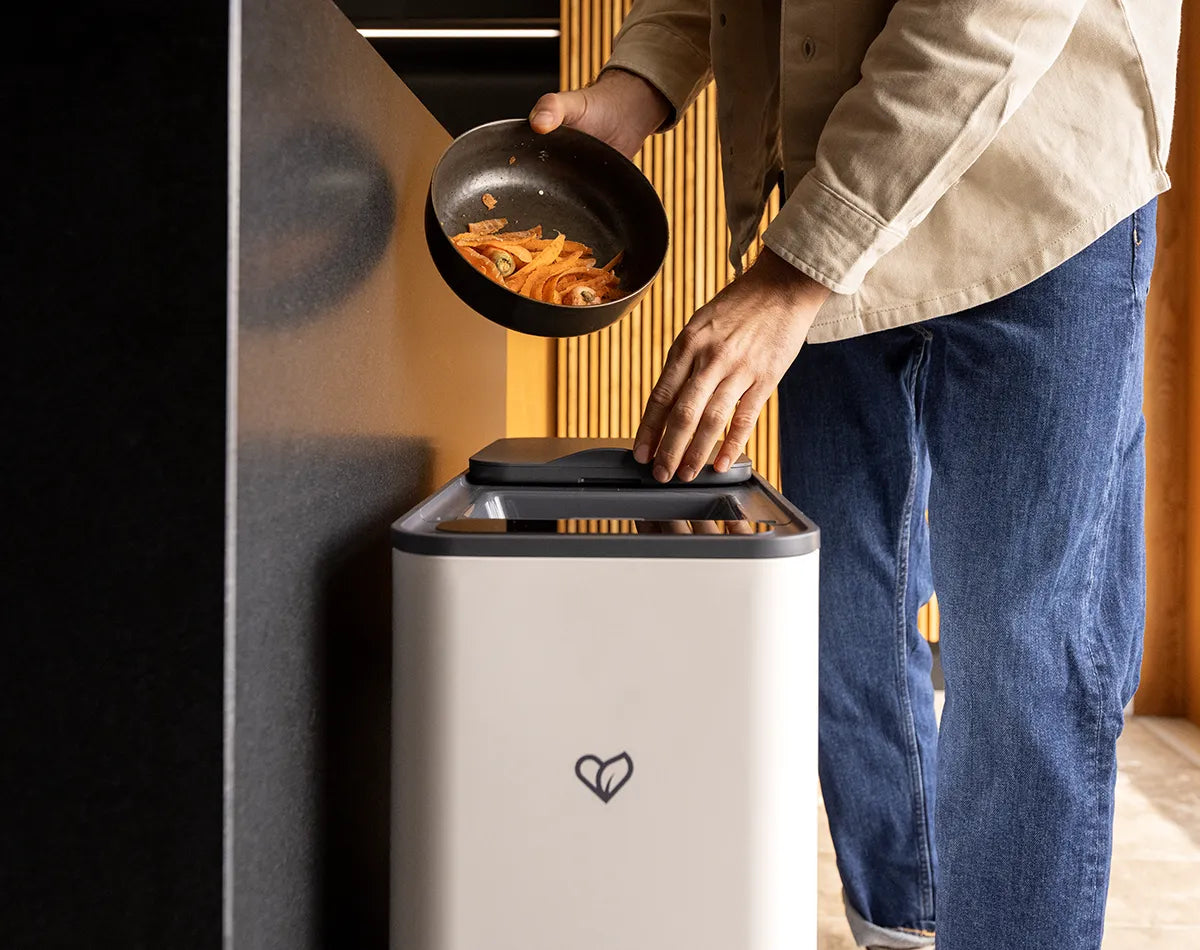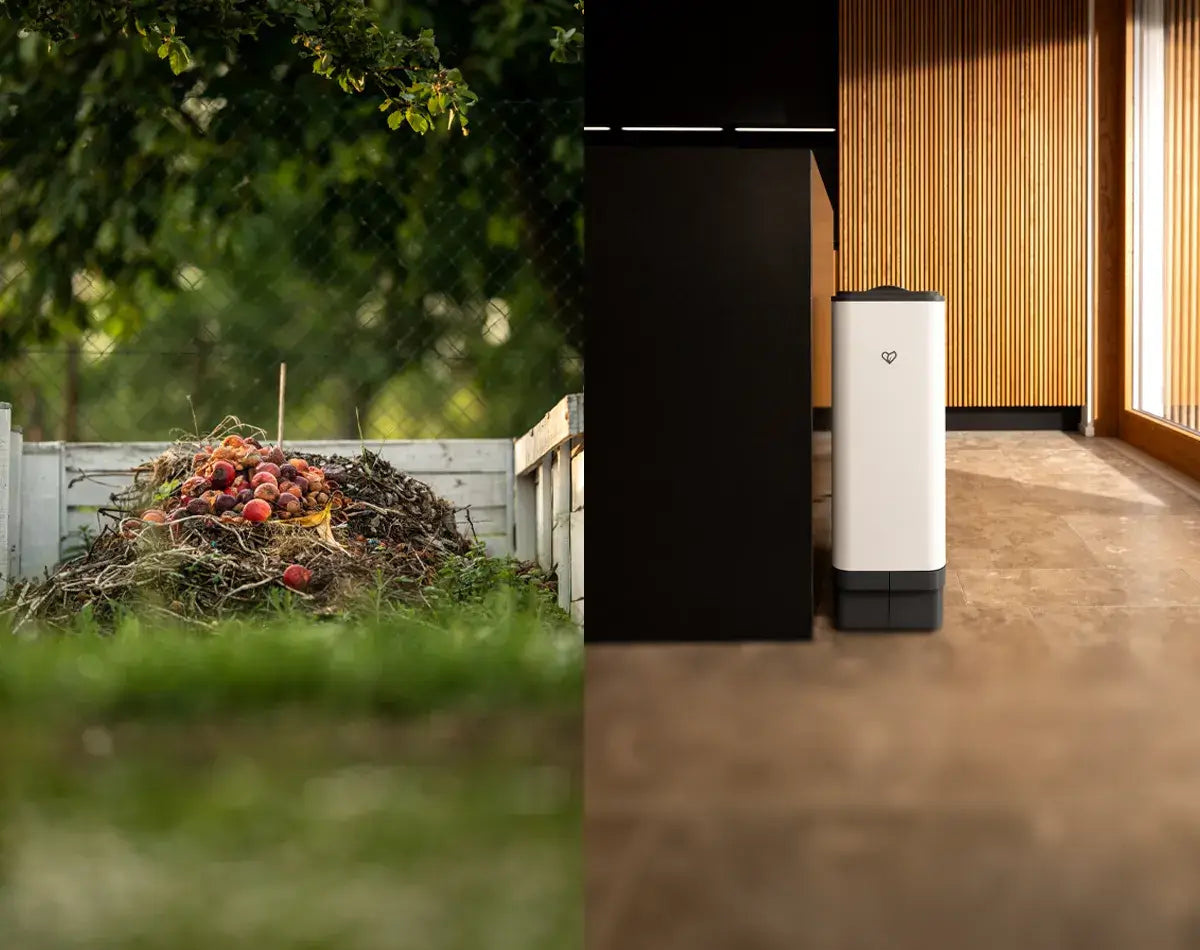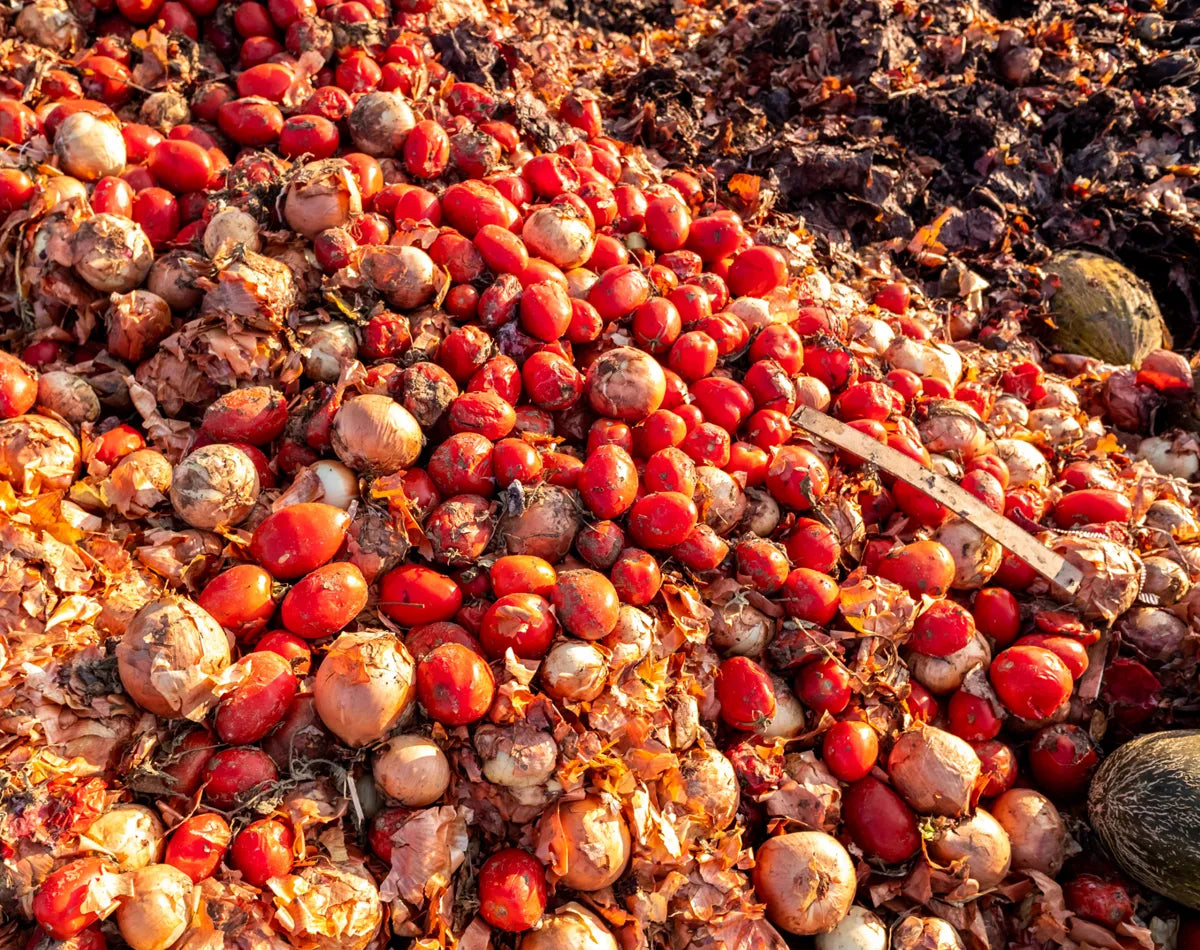Dosing tip: Add your compost to your hopefully peat-free flower and plant soil in a ratio of 1 to 10. Why peat-free? Peat extraction from moors is at the expense of the climate, as these are excellent CO2 stores.
-
The definition of composting and compost
Roughly speaking, compost is the end product of a process of composting, which results in rotting. This happens all the time in nature. In the forest, on meadows, in fields - everywhere. It means that waste, i.e. organic matter, for example the rest of your apple, has been processed by microorganisms. These microorganisms occur naturally on all foods. They are able to convert organic matter into minerals that are very important for plants.
There are different stages of compost. In an early stage of composting, some of the raw materials have already been processed into nutrients. In a late phase of the composting process, all of the organic matter has been converted into minerals that can promote plant growth. This process normally takes several weeks. With soilkind, we have combined this natural process with an innovative technology. The composting process described above now only takes 48 hours. But how do you know that the compost is of the right quality?
-
Dried organic waste is not compost and can even be toxic
Basically, recycling your waste using a composter in your kitchen is a great idea. At the same time, there are some products on the market that don't actually produce compost, but simply chop up and dry your organic waste.
This should actually be disposed of in the organic waste bin: because it can be harmful to your plants. Dried organic waste has no microbiological activity because most devices use temperatures that are too high for microorganisms to die. The result? No microorganisms = no nutrients.
In principle, you can mix the dried organic waste into your soil. However, it takes up to 4 weeks after mixing the dried waste into the soil until positive aspects in the growth of the plants can be seen. But this is not a must. In some cases, the use of dried organic waste can also inhibit the growth of the plants, as it can start to mold. In addition, the long composting time in the soil means that your plants wait far too long for important nutrients. In addition, dried organic waste that is heavily moistened again by watering, for example, can undergo anaerobic decomposition, which releases methane gas. This gas is more dangerous for the environment than carbon dioxide. And of course just as dangerous for your plants.
-
Real compost loses volume
When handled correctly, composting reduces weight, volume and
water content of your organic waste and kills harmful organisms. Basically, the rule of thumb is that properly composted waste loses about 85% of its volume and is only slightly moist.
So if you have a device that only reduces the volume slightly, you can be sure that no real composting process has taken place. When you hold your compost in your hand, it should not be too moist, but also not too dry. Very fresh compost, for example directly after processing in soilkind, is also slightly warm.
-
Compost has superpowers
There are so many positive effects that compost has on the soil you use for plants, the garden or in nature. For example, it promotes diversity in the soil as it enriches the soil with important nutrients and minerals.
Compost in your soil can help to retain moisture better. By building up the soil's nutrient composition, compost-rich soil retains moisture much better than dry, less nutrient-rich soil. The same applies to air circulation - if the soil is compact, compost mixed in creates more "space" for air.
-
Quality instead of quantity
Soil quality can be improved by compost because the nutrients are "ready" to be processed by the organisms in the soil. This means that the plants do not have much trouble absorbing the important nutrients through the soil and their roots.
On average, you should fertilize every two to three weeks during the sunny months from spring to autumn. Some plants need a little more compost power, others a little less. It is important that you supply the plants with compost regularly so that they can grow evenly.
Happy composting!





